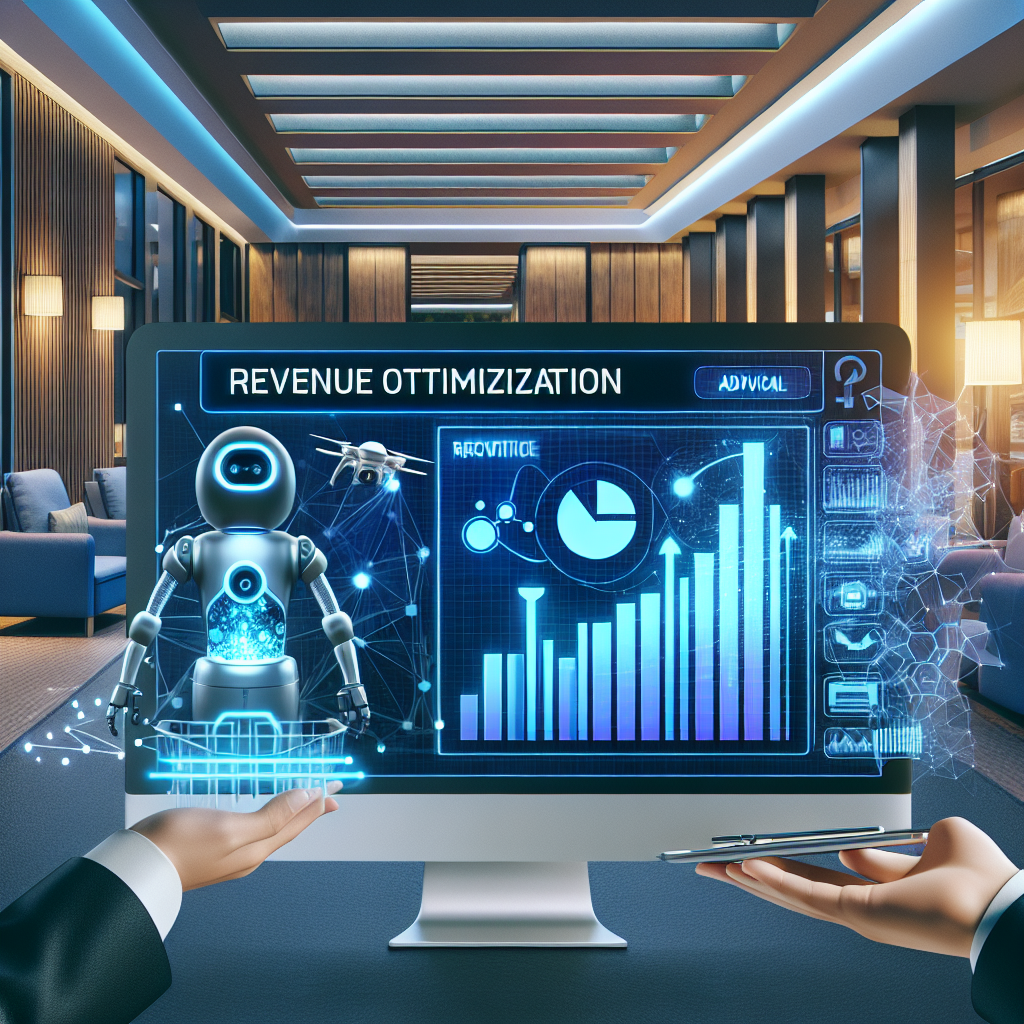Artificial intelligence (AI) has significantly transformed the way businesses operate in various industries, including the hospitality sector. One of the key areas where AI has made a significant impact is revenue optimization for hotels. By leveraging AI-powered tools and technologies, hotels can better understand their guests’ preferences, predict demand, and optimize pricing strategies to maximize revenue. In this article, we will explore some of the AI-powered revenue optimization strategies that hotels can implement to stay competitive in today’s dynamic market.
1. Dynamic Pricing
Dynamic pricing is a revenue optimization strategy that allows hotels to adjust room rates in real-time based on various factors such as demand, competition, seasonality, and guest behavior. AI-powered pricing tools use advanced algorithms to analyze historical data, market trends, and competitor pricing to determine the optimal rate for each room at any given time. By implementing dynamic pricing, hotels can maximize revenue by capitalizing on high-demand periods and adjusting rates during low-demand periods to attract more bookings.
2. Personalized Pricing
Personalized pricing is another AI-powered revenue optimization strategy that allows hotels to offer customized room rates to individual guests based on their preferences, booking history, and willingness to pay. By analyzing guest data and behavior, AI algorithms can identify patterns and trends to create personalized pricing offers that are tailored to each guest’s needs. This not only helps hotels increase revenue but also enhances the guest experience by providing them with relevant and attractive pricing options.
3. Demand Forecasting
AI-powered demand forecasting tools use machine learning algorithms to analyze historical booking data, market trends, and external factors to predict future demand for hotel rooms. By accurately forecasting demand, hotels can optimize pricing strategies, inventory management, and marketing campaigns to maximize revenue. Demand forecasting also helps hotels anticipate peak periods and adjust pricing and promotional strategies accordingly to capitalize on high-demand periods.
4. Inventory Management
AI-powered inventory management tools help hotels optimize room availability and pricing based on demand and booking patterns. By analyzing real-time data and market trends, these tools can recommend the optimal room allocation and pricing strategies to maximize revenue. Inventory management tools also help hotels identify opportunities to upsell rooms, offer room upgrades, and optimize room distribution across various channels to drive more bookings and revenue.
5. Marketing Automation
AI-powered marketing automation tools help hotels target the right audience with personalized marketing campaigns to drive bookings and revenue. By analyzing guest data and behavior, these tools can create targeted marketing messages, offers, and promotions that are tailored to each guest’s preferences and booking history. Marketing automation also helps hotels track the effectiveness of their campaigns, optimize marketing spend, and improve ROI by targeting the most valuable guests.
6. Revenue Management Systems
AI-powered revenue management systems integrate various revenue optimization strategies, including dynamic pricing, personalized pricing, demand forecasting, inventory management, and marketing automation, into a single platform. These systems use advanced algorithms and machine learning capabilities to analyze data from multiple sources, generate insights, and recommend revenue optimization strategies to maximize revenue. By implementing a revenue management system, hotels can streamline their revenue management processes, improve decision-making, and drive more revenue growth.
FAQs:
Q: How can AI-powered revenue optimization strategies help hotels increase revenue?
A: AI-powered revenue optimization strategies help hotels increase revenue by analyzing data, predicting demand, optimizing pricing, and targeting the right audience with personalized marketing campaigns. By leveraging AI technology, hotels can make data-driven decisions, improve pricing strategies, and drive more bookings and revenue.
Q: What are some key benefits of implementing AI-powered revenue optimization strategies for hotels?
A: Some key benefits of implementing AI-powered revenue optimization strategies for hotels include increased revenue, improved pricing accuracy, enhanced guest experience, better decision-making, and streamlined revenue management processes. By leveraging AI technology, hotels can stay competitive in today’s dynamic market and drive more revenue growth.
Q: How can hotels implement AI-powered revenue optimization strategies?
A: Hotels can implement AI-powered revenue optimization strategies by investing in AI tools and technologies, integrating AI into their revenue management systems, and training their staff to use AI algorithms effectively. By partnering with AI vendors and experts, hotels can leverage AI technology to optimize pricing, predict demand, and drive more revenue.
In conclusion, AI-powered revenue optimization strategies have become essential for hotels to stay competitive in today’s dynamic market. By leveraging AI technology, hotels can analyze data, predict demand, optimize pricing, and target the right audience with personalized marketing campaigns to maximize revenue. Implementing AI-powered revenue optimization strategies can help hotels increase revenue, improve pricing accuracy, enhance guest experience, and streamline revenue management processes. By investing in AI tools and technologies, hotels can drive more revenue growth and stay ahead of the competition in the hospitality industry.

